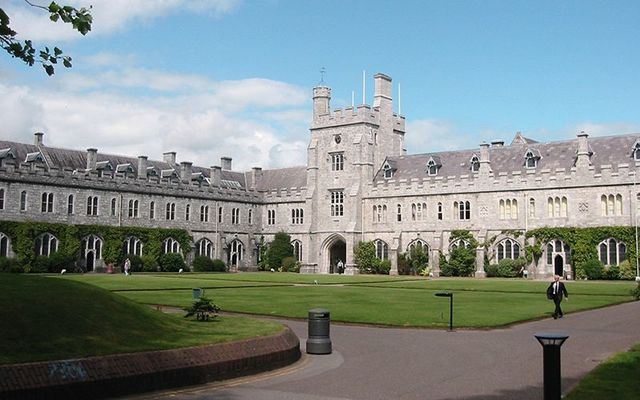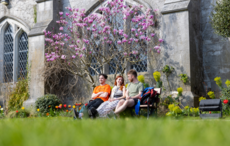University College Cork's online Masters program in Gaelic Literature.
The wealth of Gaelic literature and what it can teach us about Ireland is almost second to none and there's now no excuse not to learn as much as you can with the help of the latest online course that's come on our radar.
Read More: What to do if there are no Irish language lessons near me?
Wherever you are based in the world, it is easier than ever to delve into these vibrant elements of our rich ancient culture by taking advantage of an online MA in Gaelic Literature offered by University College Cork (UCC).
The UCC Online MA in Gaelic Literature is a unique and affordable postgraduate degree focusing on all aspects of Gaelic literary culture, from early to modern times. It is taught by experts in the Department of Modern Irish, University College Cork, but you can undertake the whole course from your own home, no matter what part of the world you are based in.
This Irish university is offering an online course that explores all things GaelicThis Irish university is offering an online course that explores all things Gaelic! Read more here: http://bit.ly/2UsYg7w
Publiée par IrishCentral.com sur Jeudi 11 avril 2019
Read More: How hearing “póg mo thóin” in the schoolyard led this Californian to learn Irish
Taught completely online, the course may be taken full-time (in one year) or part-time (in two years). The course is taught in English and no prior knowledge of any Gaelic language is required. The student chooses six taught modules from a menu that includes a module on the Irish Language for Beginners.
Other modules include:
Gaelic folksong

Image: Getty.
Gaelic folksong is but the Gaelic language put to music. The cadences of expression, the lyricism of meaning and the rhythms of thought all meet in the beauty of song.
Add to that the ability of words and music from the 17th and 18th centuries to speak to us over hundreds of years, and we start to understand why Gaelic song still fascinates and enthralls.
One of the most abiding melodies, Domhnall Óg, a song of love and rejection, is one of the most plaintive airs in the Irish tradition, and one that transcends time and cultures by speaking to some of the emotions central to the human condition. Gaelic song is always more than entertainment: it is an art form with communication at its core.
In the MA in Gaelic Literature, the songs of the Gaelic world are explored, explained, and, most importantly, listened to.
Read More: Irish language lessons and where to find them
Irish placenames

Image: Getty.
In Irish placenames, we gain immediate access to a world that modernity cannot obscure.
Clontarf today is a built-up seaside suburb of Dublin, but its name - Cluain Tarbh, 'the meadow of the bulls' - tells of another time when this became the site one of the most celebrated battles in Irish history.
The common name Poll an Phúca reveals associations with the malevolent deity of Halloween, the Púca - Shakespeare's 'Puck.'
In a country where every hill, hollow, field, and clump of trees were given names hundreds of years ago by unknown Celtic ancestors, a map of an ancient and alternative civilization exists at every corner and every turn of the road.
The MA in Gaelic Literature will take you on that road, back to the time when this legacy was created that which remains strangely contemporary.
Read More: How much Irish is spoken in Ireland?
But don’t just take our word for it! Aileen, who lives in Denver, Colorado, has already completed the course and she has plenty of praise for how she was able to undertake the MA online and jump straight into these fascinating subjects from across an ocean:
Find more information on the MA in Gaelic Literature with UCC here.
This August, we're celebrating Gaeilge (the Irish language) and Irish music with a series highlighting those around the world speaking and learning Irish, and playing Irish music. Visit our dedicated music section here or our Irish language section here to read more.
You can follow throughout the month by using the hashtags #ICMusic, #ICGaeilge or by following us on Facebook, Twitter, Instagram or LinkedIn.
* Originally published in August 2019.




Comments